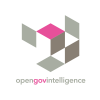-
0 comments
OpenGovIntelligence is a very interesting project, the objectives are well defined, as well as the existing barriers to the implementation of the project. I believe that the project can have a great future in the solution and prediction of problems in different sectors of the population if it is correctly applied.
From my point of view, I think that making LOSD (Linked Open Statistical Data) available in a well-structured manner is one of the keys to the success of the project and may lead to spontaneous co-creation of new Services offered by citizens or organizations to the Public Administration (PA), contributing to economic sustainability.
The main challenges I find in creating LOSD portals, in order to structure LOSD information in a global and productive way, is to be able to unify them, classifying the data in an adequate and standardized way by sectors and become all this data interoperable, so that, by this way, it would be possible to obtain relevant information by sectors and problematic in a structured way, being able to be relevant when it comes to predicting needs.
On the other hand, another of the main handicaps from my point of view is the lack of more explicit legislation in relation to this field of LOSD and their interoperability, for example it might be interesting to define what data can be published in each sector, which Standards to be interoperable, etc. Perhaps this framework could be the basis for this handicap.
I think these two challenges are key to building a solid global and interoperable LOSD infrastructure globally and on my opinion is the most important idea of the project. Therefore, as a suggestion, I consider that is very interesting to give more importance to these two points, because they are key to the take-off of LOSD-based services and the development of future services based on co-creation based on LOSD. For example, in terms of interoperability, it is said at the beginning of the project that to solve this problem framwork is proposing. I think it would be well to highlight how the framework will solve the problems of interoperability, since it would be a great advantage to be able to be adopted by the Public Administration. As for the unification of data it would be interesting to carry out a unification by sectors, in order to be able to reuse the modules and in this way the project could be expanded more easily and quickly. The methodology to achieve this could be to hold meetings between administrations to be able to unify data and from there to establish regulations in relation to this subject of great utility to predict and to make decisions in multitude of sectors.
As another suggestion to the project, I would emphasize the following in the process of co-creating services: although the target public is defined as the public administration, as the creator of the LOSD, I think that the target audience for this project is society as a whole, Including citizens, different organizations, companies, entrepreneurs, etc., since the LOSD provided by the PA can greatly help them to focus problems, create new businesses, and co-create new services, which can be proposed by a Company, or an entrepreneur, or a citizen to the PA and generate interest and finally create the service. I therefore think that it would be highlighted the important role of such LOSD for being used by citizens or organizations which can also facilitate them to create new services or propose new services to the PA in which both are involved so that a new service would be Co-created. I think this would be interesting to introduce in the pilots, how the LOSD provided by the administration can lead to co-creation of new services, which is not mentioned in the pilots, and I think it is a great potential of this project.
Also, it would be interesting to present pilot projects with a methodology that is sufficiently scalable and interoperable, establishing the basis of unification so that in the future LOSD can be unified and more services can be created because we have more co-related data.

